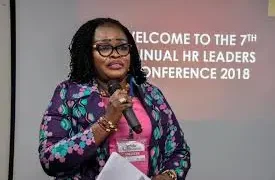The strength of this statement is drawn from the evidence of policy progress, as well as the insights of civil society organisations who are tracking environment friendly measures on the ground. Nonetheless, the worldwide economy is still excessively reliant on fossil fuel-based energy, transport and carbon intensive industries. With an increasing share of this workforce finding themselves unemployed, these sectors are quite simply failing to secure and create enough jobs. The brown economy model is struggling and does not provide us the sustainability we need to safeguard this planet, which we are in effect borrowing from future generations. Some yet to be born. What then are the aspirations and robust foundations the world has, on which to build a green and equitable economy?
Politics Matters
For the first time and at the COP21 in 2016, worldwide governments together with businesses, trade unions and civil society organisations adopted the “Paris Agreement on Climate” to set global targets for the world to reduce or at the minimum, maintain global carbon emissions. This offered for the first time, an opportunity for all countries, but the most industrialised ones in particular, the prospects of making changes where economy, ecology and society can match and work in a symbiotic manner. As a matter of fact, we need governments, all governments, especially those of the most polluting countries to politically support such an accord to transform this “agreement” into a “movement”. The opening statement by Mrs. Von der Leyen when she was newly appointed the European Commission President in 2019 wishing “Europe to become the first climate-neutral continent in the world by 2050” gave all, including experts, technocrats and decision makers hope for the future, as it was considered to be a call to action.
Forward-looking Economy
The Green economy will be an inspirational model for the future, and green jobs will be the backbone of it. Green Skills, or to put it better, “Greening Skills” are required to create jobs and support the green economy. This reflects the journey we all need to urgently embark on, not only to make our planet ready for the future but to make it sustainable and able to regenerate itself.
Collaborative multilateral, international and regional skills organisations should become major platforms where we all learn the skills required. The evolution of skills to model the demand of societies, should be the focus of existing and imminent future occupations. This is the stuff of innovation.
The “greening” of existing occupations should be on the agenda of education policy makers and educators in all education systems. Specific attention should be paid to up-skilling, re-skilling and educational reforms, targeting greening areas such as Renewable Energies, Energy and Resource Efficiency and Natural Resource Management. One should also take note that the Green Jobs sector goes far beyond those limited to the greening areas only. For instance, parallel sectors such as businesses feeding into industries i.e farming, construction, manufacturing, mining, public transport and utilities as well as related services present excellent opportunities for green jobs creation also. Green Jobs, Green Skills, Competencies, Learning Objectives, Curriculum will then be defined and sustained by Innovative Learning Solutions.
To support all this, we will need talents with necessary foundations in terms of “knowledge” but also in terms of “attitude” and “values”. Educational reforms on Technical and Vocational Education and Training (TVET) for green and sustainable economies will be given maximum potential to succeed if, and only if, educational systems intentionally place a premium on their importance and go ahead to systematically ingrain the right attitude in primary and secondary school pupils, towards them. The Greening economy needs to be reflected throughout the entire education system with a very holistic approach.
The call for greening skills and a green economy will no doubt make some impact on climate change and will also help us to manage desired outcomes. Outcomes whose effects will be generational and for which movements such as FridaysForFuture are already holding us to account.
To face our future, let’s keep the window of opportunity wide open. Innovative technologies such as nanotechnology in engineering sciences or core elements of Industry 4.0 will offer more to reach in production, management and conversion of energy, energy storage and distribution as well as its intelligent usage; while our natural resources will be managed with smart processes to secure decent life for all, leaving no one behind on our blue planet, and forever greener.



















































































 EduTimes Africa, a product of Education Times Africa, is a magazine publication that aims to lend its support to close the yawning gap in Africa's educational development.
EduTimes Africa, a product of Education Times Africa, is a magazine publication that aims to lend its support to close the yawning gap in Africa's educational development.